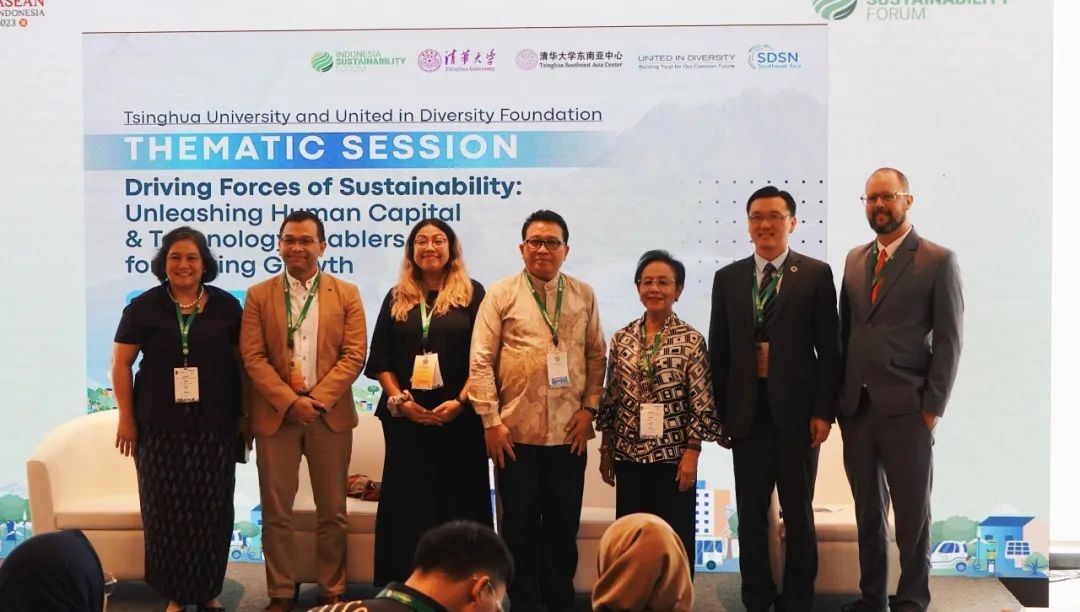
"Driving Forces of Sustainability: Unleashing Human Capital & Technology Enablers for Lasting Growth" Thematic Session
JAKARTA, INDONESIA — In an era marked by rising greenhouse gas (GHG) emissions and environmental uncertainties, the international community looks towards collaborative efforts and shared knowledge to pave the way for a sustainable future. Amidst the mounting challenges posed by global climate change, Jakarta stood tall as the epicenter of change this week, hosting the pivotal Indonesia Sustainability Forum (ISF) 2023 on September 7–8, 2023, at the Park Hyatt Jakarta. Acting as a catalyst, ISF 2023 emphasizes Indonesia's role as the budding nexus for innovation, education, and international partnership in sustainability. A standout session on the first day, "Driving Forces of Sustainability: Unleashing Human Capital & Technology Enablers for Lasting Growth," co-hosted by Tsinghua University and the United in Diversity (UID) Foundation, and supported by the Tsinghua Southeast Asia Center (TSEA), became the centerpiece of discussion, shedding light on Indonesia's remarkable potential in leading the global sustainability charge.
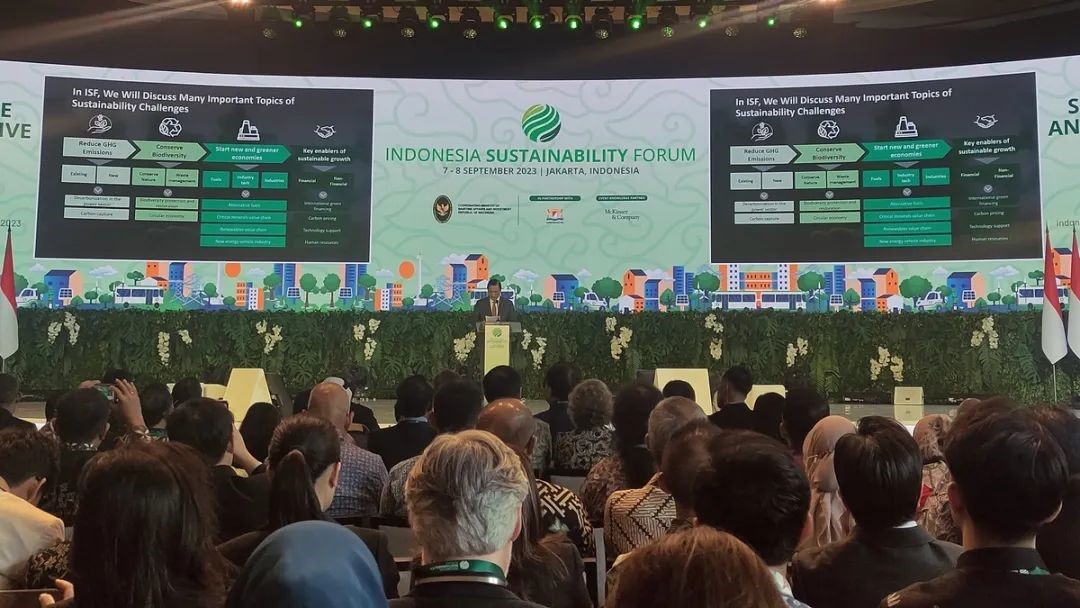
The Indonesia Sustainability Forum 2023 Opening Ceremony at the Plenary Hall (Source: kompas.id)
The 2023 Indonesia Sustainability Forum
The Indonesia Sustainability Forum (ISF) concluded its monumental debut with the collective voices of global leaders emphasizing the urgency of sustainability efforts and innovative collaboration. This inaugural international-scale sustainability forum welcomed over 700 international participants and more than 100 esteemed speakers from various sectors, positioning Indonesia at the forefront of global sustainability discourse.
Spread over two days, the forum hosted 10 high-impact plenary sessions, where prominent figures from the government, multinational organizations, businesses, and sustainability experts discussed pivotal enablers and opportunities in decarbonization and a sustainable economy. Among the notable attendees were the President of Indonesia, Joko Widodo, the Prime Minister of Papua New Guinea, James Marape, the President of Philippines, Ferdinand Romualdez Marcos Jr., the Minister of Sustainability and Environment of Singapore, Grace Fu, and the Managing Director of the International Monetary Fund (IMF), Kristalina Georgieva. Participants came from various backgrounds, such as policy makers at the ministerial and deputy levels, C-level executives from both overseas and domestic companies, representatives from intergovernmental organizations, think tanks, national civil society organizations, philanthropies, and a myriad of industry associations dedicated to sustainability.
Thematic Session on Human Capital and Technology Enablers
Running concurrently within the ISF, 14 thematic sessions allowed attendees to delve deeper into topics discussed at the plenary level, creating intimate environments for robust discussions, networking, and the seeding of collaborative ventures. One thematic session, "Driving Forces of Sustainability: Unleashing Human Capital & Technology Enablers for Lasting Growth", hosted by the Tsinghua Southeast Asia Center, attracted around 100 participants from diverse backgrounds such as governments, private sectors, NGOs, academia, and associations.
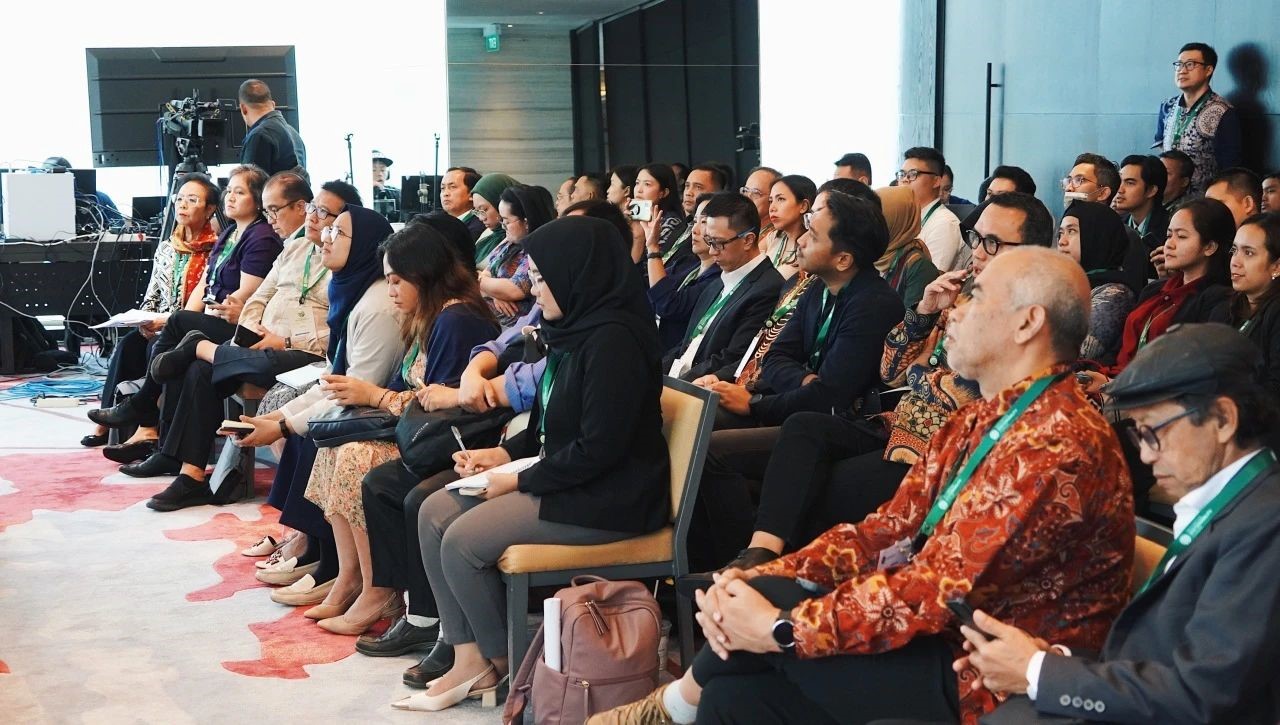
The Session Venue
Prominent Remarks
The session was opened by two prominent remarks from the Tsinghua University President and the UID Foundation President. First, a message from President Wang Xiqin of Tsinghua University underscored the transformative potential of education in the realm of sustainability, advocating for comprehensive curriculum reform to meet future challenges. "Our curricula should be the very ground where seeds of sustainable transformation are sown. Tsinghua, as a global institution, realizes the weight of this responsibility."
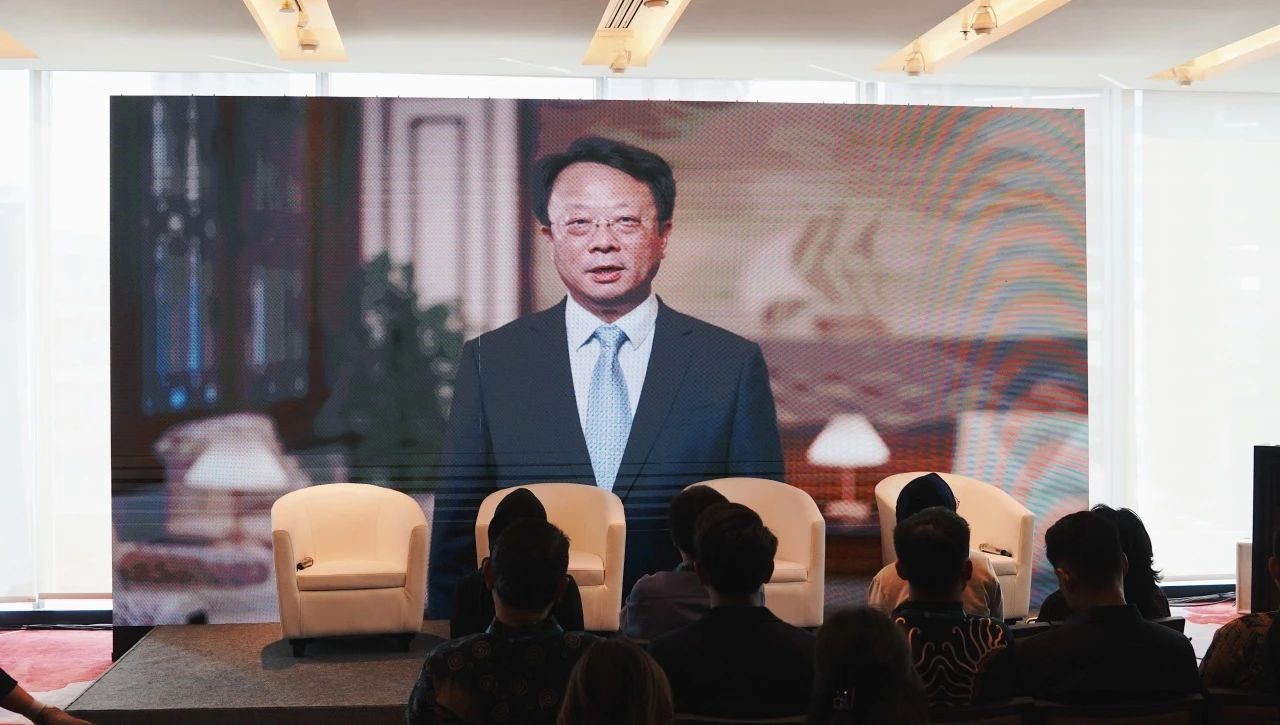
President Wang Xiqin, the President of Tsinghua University in China
H.E. Mr. Tantowi Yahya, President of UID Foundation, emphasized the critical importance of education and capacity building in driving Indonesia toward a sustainable future.
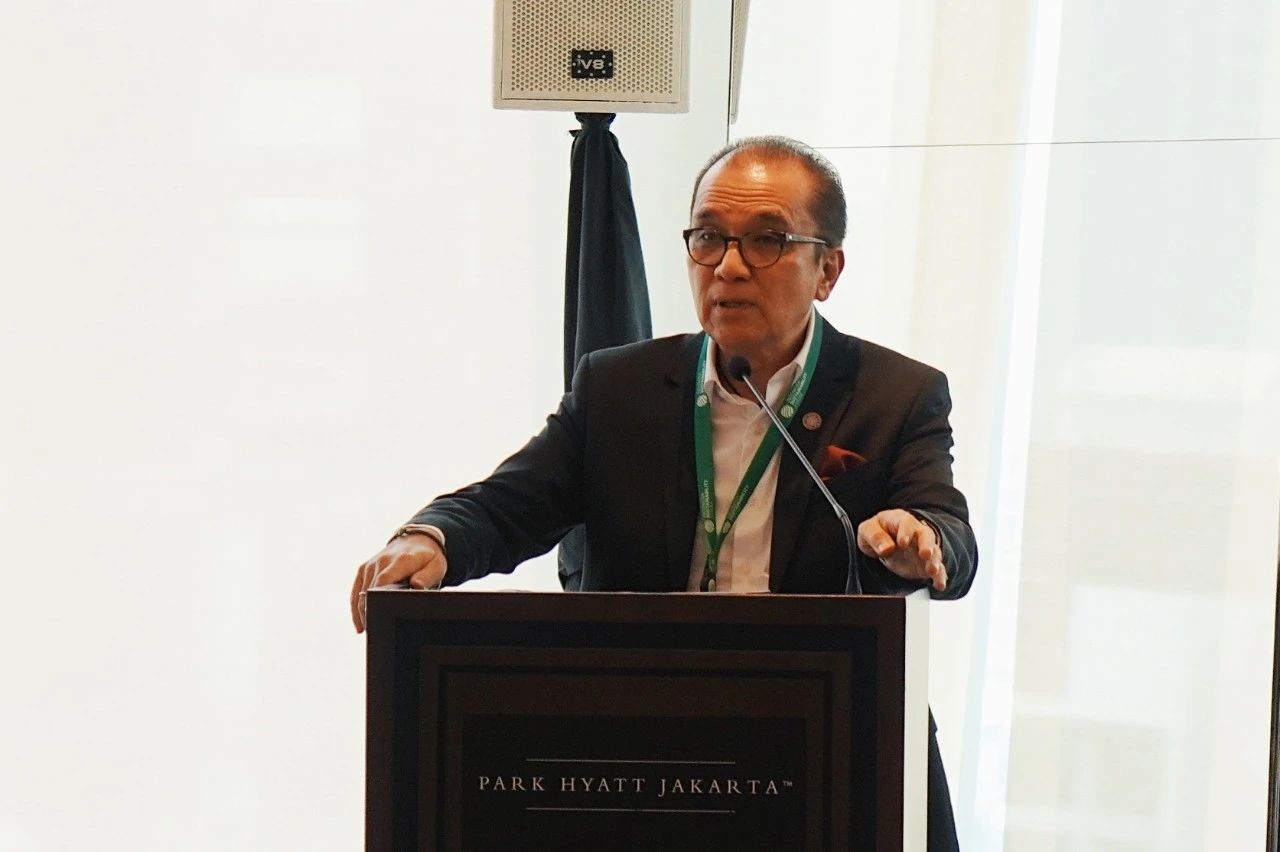
H.E. Mr. Tantowi Yahya, the President of UID
Diverse Perspectives and Deep Insights
The heart of the session was a panel discussion featuring notable experts:
●Prof. Zhu Xufeng, Dean of School of Public Policy and Management, Tsinghua University;Executive Director of Institute for Sustainable Development Goals, Tsinghua University
●Shobi Lawalata, Director of Academic and Learning Program, and Associate Professor at UID
●Rizky Fauzianto, Indonesia Country Manager at Rocky Mountain Institute (RMI)
●Prof. Dr. Ir. Kadarsah Suryadi, DEA, Secretary of Indonesian Higher Education Council
The session was moderated by Michael Tuori, Academic Director of the TSEA, who warmly welcomed the participants, attending both in-person and virtually.
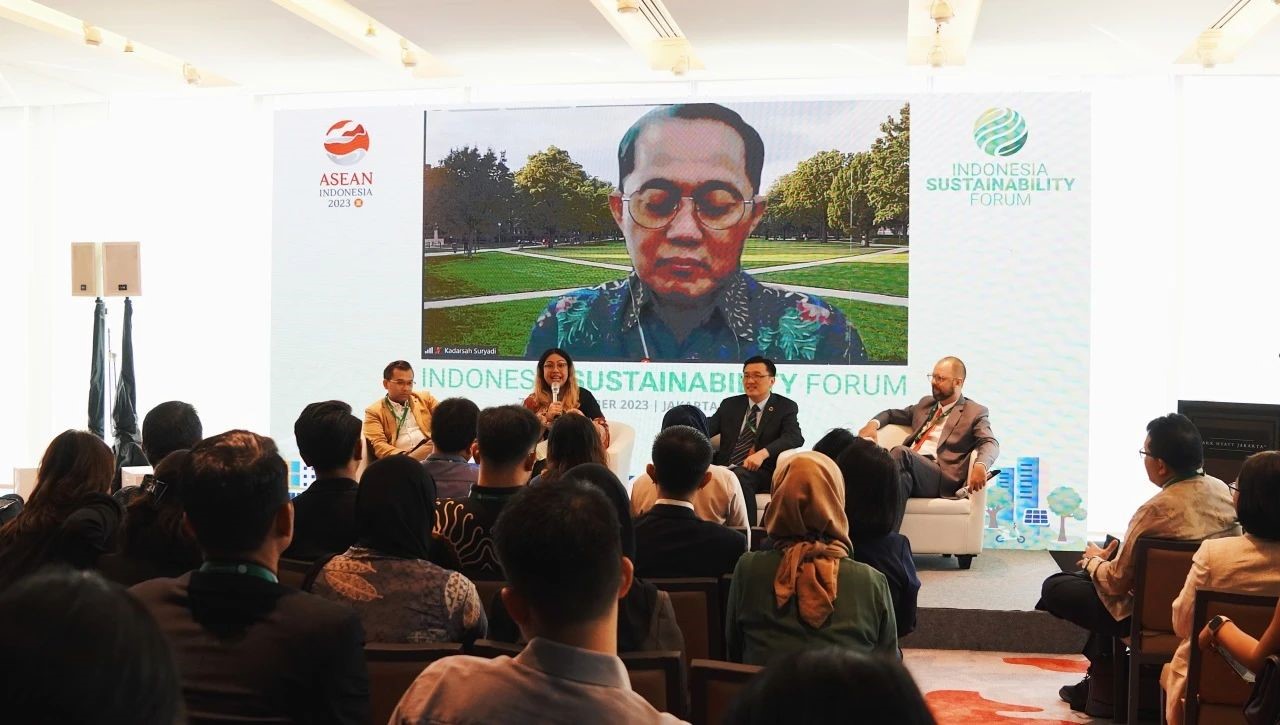
All the Panelists on Stage
(From left to right: Rizky Fauzianto, Shobi Lawalata, Prof. Zhu Xufeng, Michael Tuori; on the screen: Prof. Kadarsah Suryadi)
While the panel comprised a blend of experts from various sectors, the underlying theme was clear: harnessing the collective strength of academia, industry, and public policy to drive sustainable transformation.
Prof. Zhu Xufeng touched on the importance of educational institutions, asserting, "Our role extends beyond imparting knowledge. We're here to shape the innovators and leaders who will chart our sustainable future."
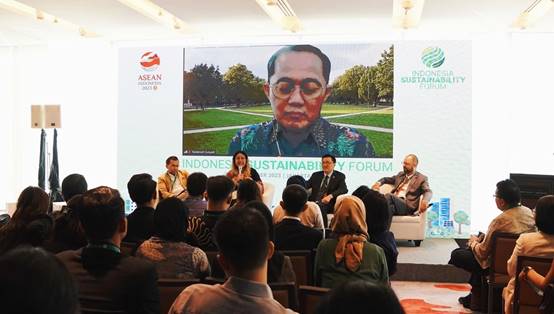
Prof. Zhu Xufeng (center), Dean of School of Public Policy and Management, Tsinghua University; Executive Director of Institute for Sustainable Development Goals, Tsinghua University
Shobi Lawalata brought forth the significance of engaging all stakeholders, including local communities, in this global effort, reminding attendees of the essential “gotong-royong” spirit that can fuel widespread change.
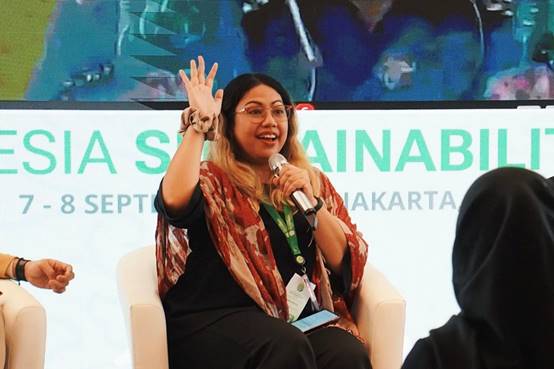
Shobi Lawalata, Director of Academic and Learning Program, and Associate Professor at UID
Key Takeaways
●Universities can serve as hubs for industry and academia to collaborate on sustainable technology.
●Policymakers, educators, and researchers need to work collectively to align their sustainability objectives.
●The Ministry of Education, Culture, Research, and Technology of Indonesia is working to integrate sustainable development across all levels of education through the Emancipated Learning Program, through which education institutions can collaborate with industry to work on tackling challenges and creating solutions related to Sustainable Development Goals (SDGs).
Looking Ahead
With discussions spanning technology's role in sustainability, the importance of adaptive education systems, and the need for cohesive international strategies, the session provided a comprehensive blueprint for the path forward.
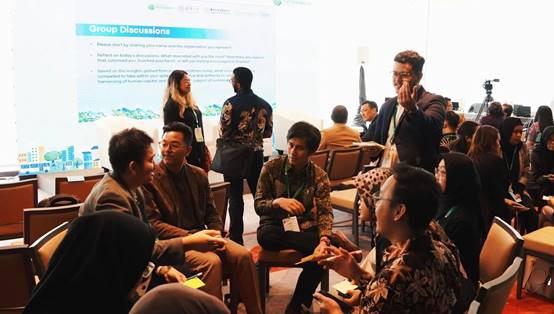
Group Discussions Among Participants During the Session
"As we move forward, we have to remind ourselves that the planet is not ours but borrowed from future generations," said Prof. Dr. Ir. Kadarsah Suryadi. This sentiment encapsulated the event's emphasis on long-term planning and collaboration among all sectors of society for a sustainable future.
The session concluded with a thought-provoking Q&A segment, which delved into the role of political will in steering future policies for sustainability, and was gracefully closed by Ms. Tuti Hadiputranto, Chair of Board of Trustee, United in Diversity (UID), reminding attendees of the journey ahead and the partnerships required to navigate it effectively.
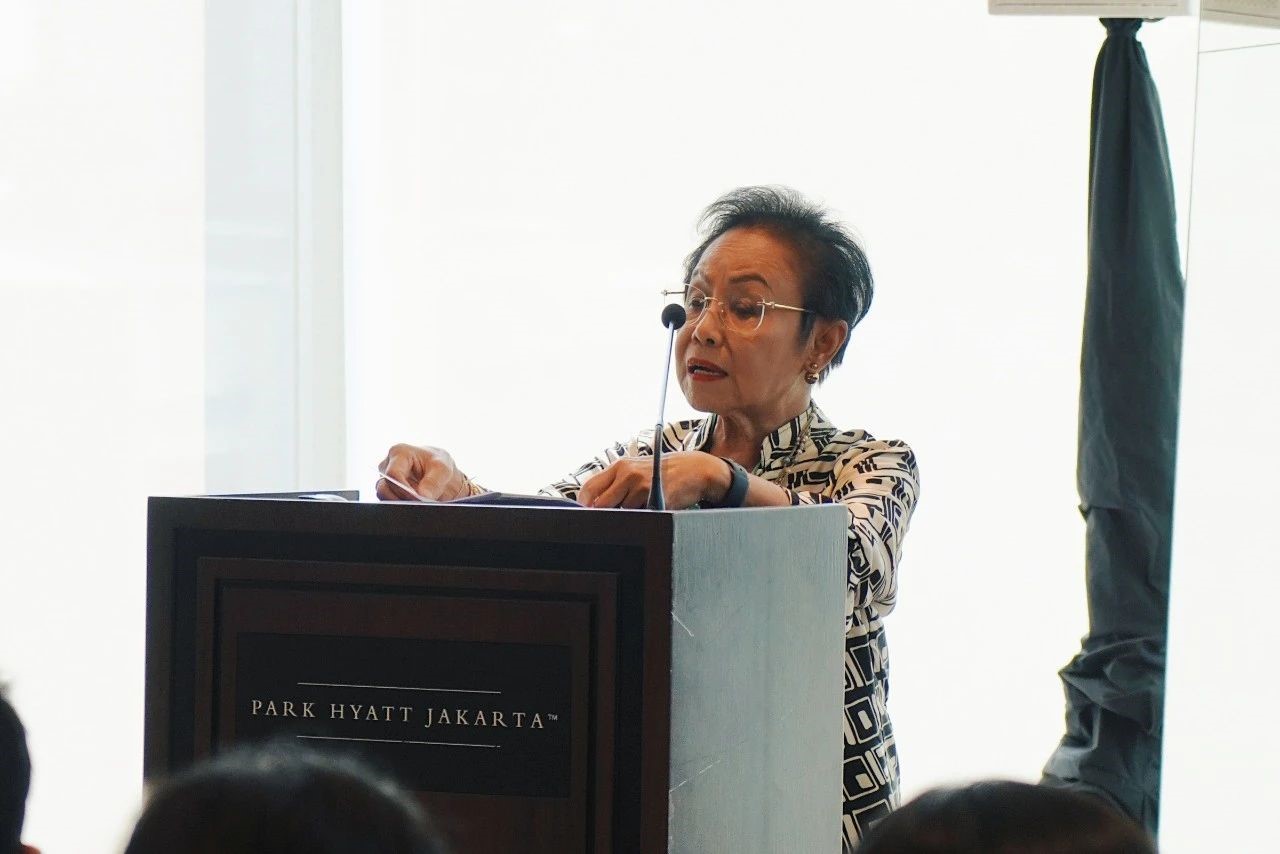
Tuti Hadiputranto, Chair of Board of Trustee, UID

